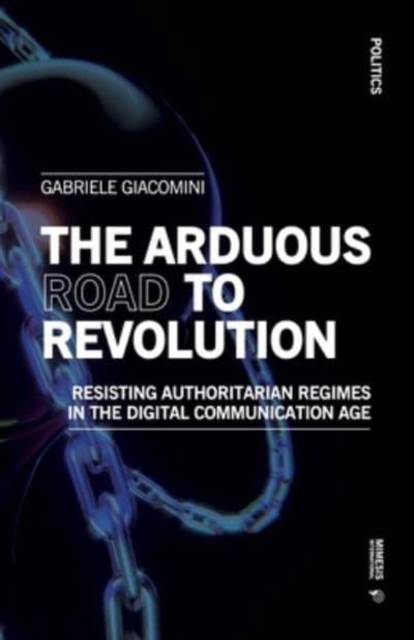
- Afhalen na 1 uur in een winkel met voorraad
- Gratis thuislevering in België vanaf € 30
- Ruim aanbod met 7 miljoen producten
- Afhalen na 1 uur in een winkel met voorraad
- Gratis thuislevering in België vanaf € 30
- Ruim aanbod met 7 miljoen producten
Zoeken
The Arduous Road to Revolution
Resisting Authoritarian Regimes in the Digital Communication Age
Gabriele Giacomini
€ 16,95
+ 33 punten
Omschrijving
The right to rebel against an authoritarian power is part of liberal and democratic culture. As early as the late seventeenth century, John Locke theorised that if a state abuses its citizens, they have the right to revolt. Nowadays, information and communication technologies can help the early stages of revolt. However, at the same time they also seem to offer the threatened autocrats powerful tools. Failed revolutions that have unfolded in our digital age in countries such as Myanmar, Ukraine, Iran, Egypt, Hong Kong and Belarus, bring to light the great and often successful efforts of authoritarian regimes to use new technologies for surveillance, oppression, propaganda, censorship, and the suppression of fundamental rights. The risk of a drift towards despotism, from which even long-established democracies are not immune, prompts us to ask what skills, rules and institutions might help citizens to defend their freedom when it is under threat, including in the digital sphere.
Specificaties
Betrokkenen
- Auteur(s):
- Uitgeverij:
Inhoud
- Aantal bladzijden:
- 116
- Taal:
- Engels
- Reeks:
Eigenschappen
- Productcode (EAN):
- 9788869774072
- Verschijningsdatum:
- 23/08/2022
- Uitvoering:
- Paperback
- Formaat:
- Trade paperback (VS)
- Afmetingen:
- 140 mm x 208 mm
- Gewicht:
- 172 g

Alleen bij Standaard Boekhandel
+ 33 punten op je klantenkaart van Standaard Boekhandel
Beoordelingen
We publiceren alleen reviews die voldoen aan de voorwaarden voor reviews. Bekijk onze voorwaarden voor reviews.







